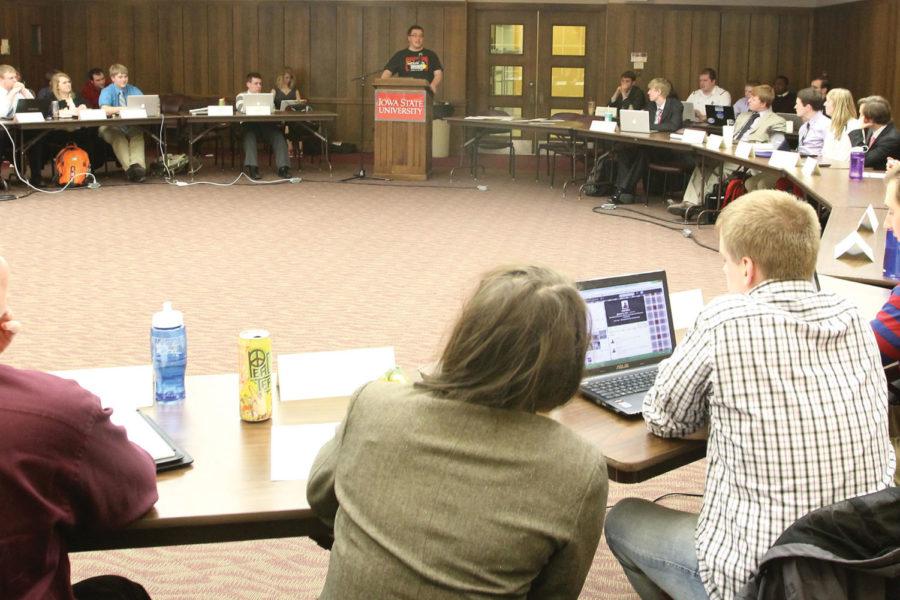Government of Student Body Supreme Court to issue an opinion for the first time in 3 years
GSB members listen to questions and concerns on March 13, 2013, in the Campanile Room at the Memorial Union.
April 9, 2013
On April 8, 2013, former Government of the Student Body president Jared Knight vetoed a bill passed at last week’s GSB Senate meeting.
The bill was “Funding Student Government Day,” which passed in the Senate with a vote of 18-10-2. Authors of the bill were senators Nathan Vos and Barry Snell.
The controversy of this veto surrounded the fact that there would not be an opportunity to override it, given that the new GSB Senate and Executives were sworn in April 8.
In order to override a veto, the Senate must have a two-thirds vote in favor of overriding.
However, because there is a new Senate, that option is not available as it normally would be.
Vos, on behalf of United Residents of Off-Campus Constituency Council, filed a petition for a hearing with the GSB Supreme Court, claiming the veto violated several constitutional sections against Knight.
The bill allocated funds for a “Meet Your Government Day” where students could eat and mingle with members of GSB. The goal of the event was to help GSB be more approachable and transparent to students.
Chief Justice Ryan Peterson delivered the opinion of the court, announcing the veto suspended.
On April 15, the Supreme Court will meet and decide whether or not the veto is unconstitutional. The primary concern is that the veto was not placed in time for discussion by the senate to take place.
“The veto deprived Senate of its authority to discuss whether or not to override the veto,” said Snell.
Knight explained his delay in issuing the veto.
“These things don’t become processed immediately,” Knight said. “I was booked all Friday, and the first time I could get to the office was noon today.”
“I communicated to Nathan beforehand that I was leaning toward vetoing and I told him I was going to veto. He actually started the judicial process before I vetoed,” Knight said.
If the court decides the veto stands, there is no further discussion and the bill will die. If they decide it’s unconstitutional, the bill will proceed just like the veto never happened.
Regardless of the court’s decision, there will be no more Senate discussion of the bill.
If the veto does not stand, United Residents Off-Campus will be granted almost $1,000 to fund and hold the event.
Until the decision is made, Knight has the option of withdrawing his veto if he has a change of heart.
However, when asked, Knight said he had no intention of doing so.
There are nine members of the GSB Supreme Court, which makes the majority five people. If the vote is 9-0, rather than issuing an opinion, the court will set a standard of law.
The last time the Supreme Court had to issue an opinion was in the Spring of 2010. The case was Roling v. the Election Commission and Knight was the justice that issued it.










